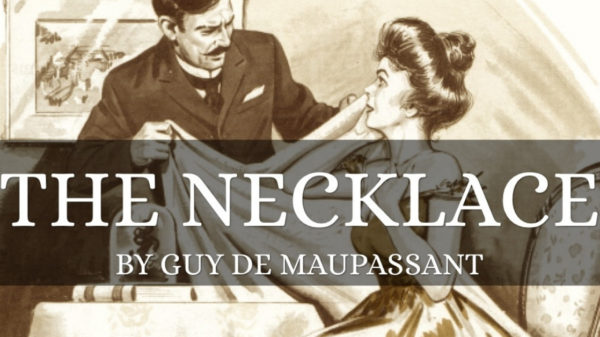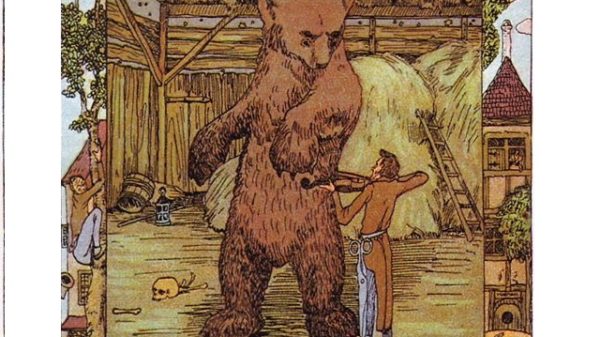In spite of its dark history, the entrance to the Brotterling Cave complex, eleven miles south of Kremming, Kentucky, appears bucolic, even inviting—a rocky, green arch, swathed in bulblet ferns, Virginia creepers, and sumacs meandering in lazy zigzags along the slope of the hill. In summer, a sumptuous veil of ironweed and lobelia spills over the lava-dark basalt, and cavers, from novice to expert, grind up the mudhole-pocked logging road in their four-wheel-drives, leave their rides in the turn-around, and trek inside like ants marching into the maw of a sleeping triceratops.
Most of the time, they come back just fine.
I’ve caved in the Brotterling a few times myself, but never before alone and always in thoroughly mapped parts of the cave system. And even though I’d heard all the stories, I was never afraid.
Now I’m terrified.
Just before sunrise, a little over seven hours ago, I crept through the woods alongside the dirt road and slipped inside the leafy green mouth of the cave. Only Boone knew what I wanted to do, and he didn’t approve it, of course—how could he, when he’s captain of Bluegrass Search and Rescue? In the heat of our argument about how to find and extract the four cavers who are currently missing, he called me “reckless and goddamn delusional” and accused me of thinking I was invulnerable because “you’ve got that synthetic thing going on.”
I bit back a laugh that would’ve embarrassed us both and told him the word was synesthesia and mine is a rare form in which sounds are “heard” through the skin as vibrations. I explained to him again how my ability could help in a situation where noises inside the cave appeared to be causing a neurological event in the brains of those exposed to them. I said I would go into the cave wearing the in-ear waterproof headphones I use on occasion to get relief from life’s general babble, which can prove overwhelming for someone with my sound sensitivities. He just shook his head and looked at me like I was contesting the curve of the earth. But this morning, no one was posted at the cave entrance to stop me, so I took that as his tacit blessing.
Or maybe he was so desperate to get Pree and the others back that losing me is an acceptable risk, albeit one he won’t sign off on.
As any caver around here will tell you, even minus the uncanny noises, the Brotterling can kill you in any number of ways. One is by tricking you into thinking it’s not a damn dangerous cave. The first two hundred feet or so are deceptively easy: after you’ve slithered and squeaked past a row of huge boulders crowded together like a mouthful of grey, diseased teeth, the cave opens up like a belly. A bit farther on, you stroll down a broad, pebbly incline while the natural light gradually dims. The vertical slit of the opening shrinks to the size of a peach pit. Suddenly, you find yourself in a constricted, mausoleum-black oubliette. You switch on your headlamp and commence the descent, scuttling through barely shoulder-width tunnels, snaking up vertical cracks, traversing a series of amber-blue lakes, some of which you can ford without getting your knees wet, others deepening into treacherous sumps where you’ll drown if you don’t have a rebreather or a damn good set of lungs.
Piece of cake was my grandiose appraisal the first time Pree Yazzie guided me through the Brotterling, but I was twenty then, brand-new to caving, recently graduated from the University of Louisville with an altogether useless BA in English lit, and just out of a closet I had not fully realized I even was in. I was also in love with her and thought it was mutual, a conclusion based on nothing more solid than a couple of nights of hot sex. I didn’t realize then that the only thing Pree ever lusted for was adventure, which she found in equal measure in caves, beds, and underground rivers. She came, she saw, etc. We’d met at a meeting of Search and Rescue, where Boone gave a presentation on abseiling techniques. I paid scant attention; Boone Pike was just another fortysomething, hardcore cave rat with a granite-gray ponytail, a smile like a crack in an anchor bolt, and big, spade-shaped hands that looked like they’d been crushed and pinned back together a time or two. I kept sneaking glances at Pree, the only other woman in a room full of men who, as the bumper stickers boast, “do it in tight places.’
A line that would make me chuckle right now, if I could expand my squeezed lungs enough to get a full breath of air. Tight places, indeed.
During that day when Pree and I explored the Brotterling, she filled me in on the cave’s not-so-savory past—how every few decades, a caver fails to resurface or, worse, crawls back out physically whole but with a maimed mind and homicidal intent.
Not quite what I wanted to hear a quarter mile under the earth, but I loved the sound of her voice when she explained the cave’s frightening history.
The first incident was Dr. Reginald Moore, a caver and Presbyterian minister who spent four days lost in the Brotterling in 1935. Lacking modern caving equipment and (perhaps a greater hindrance) a suitably arachnid-like frame, he was thwarted by narrow tunnels and unswimmable sumps, but eventually found his way to the surface and described the “eerie and infernal yodeling” of demons who tormented him by chanting the Psalms backward in fiendish, fist-thumping cadences.
Widely mocked by the press, Moore later hung himself after setting fire to his house with his wife, father-in-law, and two young sons tied up inside.
Twenty-seven years later, Garth Tidwell, a teenager who entered the Brotterling on a dare, killed himself, his parents, and a neighbor hours after exiting the cave, writing in his suicide note about singing that sounded like “a wild hallelujah of wind chimes and fornicating bobcats.”
The lurid description was dismissed as psychotic rambling, probably exacerbated by the terror of being alone and disoriented. If Tidwell had heard anything at all, it was explained away as wind hissing through passageways or water burbling up from an underground stream.
But now we come to the Hargrave brothers—Mathew and Lionel—experienced cavers who entered the Brotterling this past Sunday. Lionel, an Iraqi War Vet whose hearing was lost to a roadside IED in Mosel, is totally deaf. A few hours after the two men entered the cave, he emerged alone, battered and bloody. He described how, half a mile below the surface, Mathew had signed to him that he could hear music “coming from distant and delicate singers” and insisted they search for the source of the sound. For a while, Lionel obliged him, but when the way proved too difficult, he suggested they turn back. In response, Mathew became enraged, bludgeoned his brother with a rock, and left him unconscious and bleeding.
When Lionel finally found his way to the surface and summoned help, three senior members of Bluegrass Search and Rescue were dispatched—obsessive, spearmint-gum-chewing Bruce Starkeweather, extreme ectomorph Issa Mamoudi, and the ever elusive Pree Yazzie.
Boone’s Dream Team.
That’s when things started getting weird.
At nine that night, Starkeweather contacted Boone via cave phone to report high-pitched humming or chanting. Boone told him to return to the surface. The final transmission, a few hours later, came from a distraught, incoherent Mamoudi—mangled syntax and a garble of English, French, and Farsi that degenerated into choking and wails.
No one’s heard from any of them since.
Which is how I come to be half a mile under the earth, worming my way through a twist in the moist, black, and aptly named Intestinal Bypass, a wretched, rib-crushing, claustrophobia-inducing belly crawl. Nearing the end, just a minute ago, I came to a plug in the tunnel about ten feet ahead. I can see the bottoms of dirt-packed, lug-soled boots, a damp, filthy oversuit, and, if I crane my neck almost out of joint, I can make out the white dome of a mud-splattered helmet. It’s not Pree, who’s waif-thin and wears size six boots, but one of the men, Hargrave, Mamoudi, or Starkeweather.
I crawl closer, scraping along on my elbows and toes, but get no reaction to the light flaring out from my headlamp. My initial thought is that the caver’s become wedged in the last few feet of the Bypass, where the tunnel cinches like a cruelly corseted waist. The first time I came through here with Pree, I tore a rotator cuff trying to shove myself through the passage. Now, four years later and at least fifteen pounds thinner, it’s still a brutal squeeze.
My second thought, after I grab a leg and begin shaking it, is that while he may or may not be stuck, this guy’s stone-cold dead.
Which means if I can’t push him out, I’m fucked.
Shit. Panic pinballs around my ribs. My lungs rasp, and all the air’s vanished.
Forget whatever’s inside the cave. Forget Pree and the chance of finding survivors. I want out of here—NOW!
Then a soothing, calm voice that I’ve trained for just such situations begins speaking inside my head: Breathe, Karyn. Just breathe. You’re okay. We’ll figure this out.
It’s my own voice, the voice I’ve heard in other bad situations above and below ground, and I heed it. I must if I want to live. Gradually, I coax a full breath past the terror constricting my throat. I’m not going to die down here. Not yet, anyway. A numb resolve settles in: I can do this.
Trying to eject a dead guy out the end of a tomb-black tunnel while you’re flat on your belly feels like a sadist’s idea of a stunt on some nightmarish survival TV show. I push until my biceps blaze, but it’s impossible to get any traction. I might as well be trying to strongarm Atlas’s Dick, a colossal stalagmite cavers use as a waypoint in one of the Brotterling’s upper chambers.
I strain and curse and hyperventilate. Drink tears and cold, musky sweat. The white noise churning through the headphones under my helmet provides an incongruous soundtrack to my struggle: monster breakers shattering on a raw, rocky coastline of black sand and a harsh sun (at least, this is the image I get of it). The sound’s meant to protect me from the singing, but right now—pinched like a thumb in a pair of Chinese handcuffs—the buffering noise only intensifies the terror of being stuck in a limestone tube with a corpse.
Desperate, I decide to wiggle back out and look for another way to go on, but the tunnel twists and contorts at excruciating angles. It’s impossible to slither out the way I came in. All I get for my efforts are bruised elbows, torn knees, and the mother of all wedgies.
Panic claws at my throat. I’ll never get out. I’ll die here, squished inside a stone straightjacket. But the voice in my head bullies and curses me onward, so I crawl back to the body. Since I’m not strong enough to rely on brute force, I devise a slow, minimalist series of tweaks that gradually loosens this obstinate flesh-cork in its stone bottleneck: nudge, twist, rock side to side, nudge again.
The poor son of a bitch must have died two to six hours ago, because rigor’s setting in, which helps me extract him. He’s plank-stiff and (I discover later) both arms are arrowed out in front of him like a cliff diver, the body so rigid by the time it finally pops free, he could double as a javelin or a maypole.
I wriggle out, shaking and sweat-slick, and aim my lamp down at the dead man, groaning when it illuminates the back of Mamoudi’s seamed, bloodied neck and reveals the muddy helmet to be a porridge of gray matter and hair glommed around a split, trepanned skull. I picture Mamoudi frantically trying to birth himself out those last crushing inches of squeeze, the irony of a rockfall shattering his skull just as his head poked free. It’s a reasonable theory, except that I don’t see any fallen rocks or broken stalactites to back it up.
Looking around, I find myself in a wide, high-domed chamber forested floor to ceiling with dripstone. Farther back, overlapping ledges of white limestone crease and crinkle like bolts of brocade. The scene is enchanting and eerie, a grand Gothic hall carved out of calcite and ornamented with aragonite blooms. At one end glimmers a deceptively shallow-looking pond where eyeless albino salamanders laze on its mineral shores. I know from the survey map this is a sump, the entrance to a flooded tunnel leading into the next chamber, but whether it’s swimmable without a rebreather, I won’t know until I’m underwater.
Before I can ponder this or Mamoudi’s demise any further, something more compelling than mere violent death snags my attention: a rapid-fire spitting of sound energy, like a mad tattoo artist bedeviling my nervous system with rhythm rather than ink.
The energy natters against my palms and wet-kisses the space between my breasts. I get a sense of its volume and pitch, the aural equivalent of a blind person reading Braille, and I’m lashed with fear and euphoria. Although I’ve come down here to find Pree and the others, I also want to locate the mysterious noise. Boone must have realized that too. It’s why he didn’t want me to go.
Displaced air caused by something big lunging out of a passageway makes me whirl around. A frenzy of shadows spills over the chamber as my lamp illuminates a surreal sight: Bruce Starkeweather, his naked torso smeared with geometric designs painted in cave dirt and gore, brandishing three feet of a blood-streaked stalactite.
His shell-shocked stare tells me all too clearly I’m nobody he’s ever seen in his life, and my death is all he desires. As the sound energy from the faraway singing swells over me, he raises his club and charges.
“You should wear headphones to block out the sounds,” I’d told Boone and the others less than twenty-four hours earlier. We were in a small conference room in the Timber Hill Lodge outside Kremming. A map of the known parts of the cave system was tacked up on a board, the shaded areas indicating parts not yet surveyed. Mamoudi and Pree sat together, guzzling coffee and wolfing down bear claws, while Starkeweather, ascetic as ever, stripped foil off a stick of Wrigley’s.
Boone, unshaven and haggard-looking, had just come from the hospital where Lionel Hargrave was recovering from a concussion. He told us Hargrave had described his brother’s manic insistence on finding the source of the singing. In his deafness, of course, Lionel heard nothing and, probably for that reason (and because he evidently had a thick cranium), had survived to talk about it.
At my remark about the headphones, Pree laughed. Boone looked away, and Mamoudi got up to refill his and Pree’s coffee mugs.
I couldn’t entirely blame them. I was technically there as backup, but since I’m also the newest member of the team and never found time to get my cave diving certificate, my inclusion in the expedition was unlikely.
Pree, looking fetchingly peeved, said, “How do we communicate if we can’t hear? What are we supposed to do? Use sign language? Text?”
Starkeweather mimed headbanging. “Maybe it’s a death metal band down there making people go batshit. That used to drive my old man insane.”
Met with such thoughtful responses, what could I say? I wanted to point out that noise isn’t always benign, that whatever’s down there might be the aural equivalent of lobotomy picks jabbed into the brain via the ears. But it’s only a feeling I have, and this group, Pree especially, is not into feelings.
Starkeweather asked a question about the survival kits, and while Boone was responding, I went outside and paced alongside a thin strip of forest next to the parking lot.
After a short time, Pree came up beside me and tried to slide her arm beneath mine. I swatted her off like you would a pesky mosquito. Only a few hours earlier, she’d stopped by my apartment to try to rekindle some romance. We’d smoked a joint, laughed about old times. Then she took everything off except Mamoudi’s engagement ring and made love to me like I was the last woman on earth. And I let her. Figured I’d hate myself for it later.
Seemed like later had come sooner than I expected.
“Seriously, Karyn,” she was saying, “if anything goes wrong down there, if there’s a problem, Issa and Bruce and I will deal with it. We know the Brotterling, and we know what we’re doing. So, don’t try anything heroic.” She should’ve stopped there, but she added, “I know it must be tempting, you with your superpowers and all.”
I glared and walked faster.
“Okay, sorry. It’s just that hearing sounds through your skin, that’s pretty bizarre.”
That’s one word for it. It’s also a gift, this intertwining of hearing and touch, where sounds can be physically felt as everything from a shy tap to a punishing blow. It’s a door into something most people never experience. Pree’s voice, for example, feels lemony, tart. It fizzes under my nails and buzzes up my spine like spikes of Kundalini flame. Intimacy enhances the effect. Pree’s voice used to give me not just sensations but images, too: a fire crackling in the kiva of a house that must be from her childhood in Gallup, New Mexico, a young Pree popping figs into her mouth outside an adobe church, and a pale, bearded man who cooed to her while he lay over her body and pounded. My skin drank her life in through her voice. None of this, of course, I could tell her.
“Bizarre’s not the word I’d have chosen,” I said. “But when you put it that way, I feel so special.”
“You are special, though, aren’t you? You got written up in that magazine.”
She was talking about a story that ran in Scientific American (June 2008), in which I was tested along with a number of other more “traditional” synesthetes. Some heard colors; others tasted or smelled numbers and words. An anomaly even among anomalies, I was the only one who could pick up tactile sensations and images via sound waves, even when I didn’t understand the language. “Aural imagism,” the writer of the article called it.
I sat with my eyes closed and listened to a woman recite the same passage in a foreign language over and over. Later, I learned it was Finnish. Her vocal tones prickled the soles of my feet; it felt like dancing on tiny ball bearings. The vibrations of her voice formed images like patterns in a turned kaleidoscope. I described a dark red cup, a yellow rose, a strange bird on the wing. The man doing the testing glanced at his notes and paled. The speaker had read a quatrain from the Rubaiyat of Omar Khayyam, and I’d just described the primary imagery.
Pree laid a hand on my biceps, but I flinched, holding on to my indignation like it was a winning lottery ticket.
I said sullenly, “Boone’s screwing up not to send me down with you. I’d be able to feel the singing before the rest of you even heard it.”
She sighed and fell into step with me.
“Look, Karyn, you’ve been inside plenty of caves. You know what the silence is like down there. Gigantic. A void you don’t want to fall into. Then all of a sudden, you hear something so spooky and so unexpected, you just about crap in your pants. If you heard it topside, you’d know it was nothing, maybe the caver in front of you farted or dropped a carabiner, but underground, it’s terrifying. Most cavers shrug that stuff off, but some people can’t. They have panic attacks; they hallucinate. For all we know, what Hargrave heard was a colony of bats or maybe a few million cave cockroaches.”
When I didn’t answer, she snapped, “Dammit, Karyn, are you even listening?”
(More intently than you can imagine.)
“Maybe Hargrave went crazy because the singing he heard was too beautiful,” I said.
“What are you talking about?”
“There’s a line in the Duino Elegies by the German poet Rainer Maria Rilke. It’s something to the effect that beauty is the beginning of terror we can just still stand. Maybe that’s the deal with the singing. It triggers a level of terror humans aren’t meant to endure. It’s too beautiful.”
Her mouth set in a pinched line. I thought she was going to slap me. “Nothing’s too beautiful. That isn’t possible.” Then before I could argue, she gave me a punch on the arm that was too hard to be play. “Don’t worry, Karyn; it’s gonna be fine.” She looked back toward the motel as though somebody there had just called her name, although nobody had. She said, “See you on the surface, babe,” and hurried away.
Right now, as the sound energy of the singing floods into me and Starkeweather charges, that surface Pree spoke of might as well be on one of Jupiter’s moons.
Starkeweather halts just short of the sump. He spits out a lump of gum, bares his teeth in a cannibal grin, and takes a few warm-up swings with the club. I think he’s going to pound me to mud, but to any real caver, what he does next is unimaginably worse: he starts attacking the cave itself, swinging viciously, destroying elaborate lacework and yards of dripstone that have grown at a rate of a half inch per century. Clusters of wedge-shaped helictites explode overhead; stalagmites as tall as a man shatter and crash into the sump. The destruction sickens and horrifies me.
Within seconds, something sublime and ethereal has been reduced to an empty mouth full of snaggled teeth. Starkeweather, surveying the rubble, cocks his head and does a bizarre little jig, like he’s shaking off a swarm of cave spiders. He shimmies and scrapes at his face while his lips form the words Shut up! Make it stop!
When his eyes refocus, his red gaze finds me again. I switch off my headlamp, and the world floods away in a torrent of black. I drop to the ground and start inching along the cave floor. The headphones are a real hindrance now; they prevent me from hearing which way Starkeweather’s moving. The only sound I can feel is the singing, and that has receded to a shivery caress, a centipede skittering over my eyelashes, a salamander disturbing the roots of my hair.
A hail of stones peppers my back and pings off my helmet. Suddenly, Starkeweather’s big hands paw at my legs. I kick out blindly. My boot thuds meaty groin. Then he’s on top of me, spearmint breath hot in my face, mud-slick fingers fumbling for my jugular. A blacker, thicker shade of night starts shutting down synapses, accompanied by a dazzle of sizzling white stars expiring behind my retinas.
Under my hand I clutch a slab of smashed dripstone and heave it in the general direction of his head. He releases my throat but then latches on to either side of my mouth and tries to unsocket my jaw. I bite down on a finger until my teeth close on a nugget of bone, then roll away as blood fills my mouth. Next thing I know, I’m underwater. The sump’s frigid and inky, and—
Starkeweather be damned—I switch my headlamp back on. I’m inside a flooded tunnel where so much silt has been stirred up, it’s like swimming through horse piss. I look for an air pocket overhead but can make out only jutting mineral walls and the segmented bodies of albino worms ghosting behind swirls of particled water.
My lungs bleed for air. The sump narrows into a long, jagged throat, where beyond, water splashes over a pale, fluted ledge. Between me and the air glitters a gauntlet of stone cudgels and knives. My cave pack rips off and my oversuit’s torn. Dark red snakes squiggling too close alarm me until I realize I’m batting away my own blood. My head punches the surface, and I heave myself onto a milk-white dome of flowstone, then collapse across it, teeth wildly clattering.
Eventually, I rally enough to fill my hands with rocks and wait to see if Starkeweather follows me.
A short time later, he pops to the surface floating facedown. I let him stay like that for five minutes before I grab his belt and haul him up next to me. His neck and cheeks are grotesquely ballooned. When I turn him over, jagged pebbles and mineral chips mixed with shattered enamel gush out of his mouth in a torrent of red. I want to think Starkeweather was already dangerously unstable and would have acted out sooner or later, but I don’t really believe it. I know the singing has unhinged him to the point of attacking the cave with his teeth—the same sounds Mamoudi and Hargrave must have heard, and that Pree, if she’s still alive, is hearing right now.
It feels stronger and a helluva lot closer than it did before I passed through the sump. Those previously faint waves of energy are now sharp and urgent, a persistent scratching at various parts of my body, like a frantic child seeking entry to a house at one door and one window after another.
But the images accompanying the sensations aren’t so innocuous: a debased horde of humanity crammed into a stadium of bleeding, cruelly crushed bodies, on their knees weeping and howling. Heads thrown back, ready for the knife, keening mad invocations to an obscene deity. Their blood soaks the earth, out of which bloom stone flowers brimming with nectar and death. The vision claws at my heart and I hear my own voice telling me to get moving, to find Hargrave and Pree and get out.
It’s hard to obey. I go on.
The next chamber confounds me: a sprawling catacomb dripping with soda-straw stalactites and mounded with nodular masses of calcite popcorn. Crystals of moonmilk, a carbonate material the texture of cream cheese, festoon the floor. None of it corresponds to any maps I’ve seen. Even worse are the braided mazes of lava tubes offering a bewildering array of possible paths deeper into the cave’s interior.
But the cave, in its infernal sentience, appears to respond. The energy of the singing amplifies, the frequencies becoming imperative, like the head of a silky mallet pinging a flesh xylophone. Letting it guide me, I scramble up a succession of ledges to access a passageway midway up the wall. Its coiled path empties into an angular chamber that resembles a vandalized ossuary: stone pillars surrounding a scattering of femurs, ribs, clavicles, and fragments of skull. That the bones have lain here since long before cavers first discovered the Brotterling is made clear by the centuries-old webs of calcite deposits that veil them.
I pick my way through the boneyard as quickly as possible. Beyond it, my headlamp illuminates the area from where the sound energy seems to emanate—a lavish display of boxwork about four feet overhead, where calcite blades project at angles from the cave walls, creating a dense and elaborate honeycomb.
Between the mineral blades gleam dark seams, fistulas of ebony pulsing like fat heaps of caviar that vibrate with an avid, luminescent life. Fine, blood-red webbing threads through the black, a network of alien capillaries that carries not blood but warm, coppery sound—it seeps under my scalp and teases behind my ears, seeking to peel back and penetrate the soft, vulnerable creases of brain.
If I get out of here alive, I know what I’ll tell Boone: the singing’s not random or chaotic; it has distinct meters and color tones, and it pulses with dark languor underlaid with vicious intent.
I will tell him the creators of this song are not human, but not unsentient, either. And if the term life-form applies to them at all, it’s a life in service only to the obliteration of all others.
Long stretches of spellbound time pass as I stand here, watching the tiny caviar mouths pulse and burble out a black saliva of sound that feels ripe and almost sexually decadent.
Avid and succulent and, yes—Mathew Hargrave nailed it—delicate, too.
I want to slather my hands in the mineral meat between those basalt blades, squeeze up fistfuls of its alien iridescence and lather it into my pores, let it replace all the blood in my body with its unholy wails.
I take off my helmet and hurl it away. Then I reach up to remove the headphones.
And stop. Above me, imbedded into the hivework, loom strange columns worked into the stone, skeletal formations lifting toward the obsidian sky. Sections are patterned with ovoids and creases of lighter stone, the pale areas inlaid with vertical striations of crimson. The sight wallops the breath from my chest.
One of the columns is watching me.
Basalt doesn’t bleed, but burst eyeballs and lacerated skin weep red down the sides of the dripstone cloaking two human forms in their mineral shrouds. Mathew Hargrave has been almost entirely consumed. Crusts of muscle and gashed bone jut out from his stone sarcophagus. Only his upper chest, the arms tucked into his torso like folded wings, and his slack, swollen face are still recognizably human. His remains are being played like a bone flute as torturesong rasps from his mouth.
But Pree, oh Pree, is another matter. Her time inside the Brotterling has been briefer than Hargrave’s; less of her has been entombed. Rigid and ashen-faced, she balances on a narrow outcrop a few feet above, tarry squiggles of hair falling over the rags of her clothing. Her mouth convulses in torment. Skeins of sound tangle in her teeth and snake from her lips. Tendrils of it adhere to her face. The frequency of the vibrations chugs to the lowest registers, rich and mellow, bassoon-like, the notes unspooling in hypnotic spirals, so that each births the next lower note on the scale, and all the while, Pree’s terrified eyes tell me the truth: it’s a death song and she can’t help but sing it.
Black rings frame the edge of my vision as Pree’s silent screams flail me. Her body spasms. A rent opens under her breast as the slender spear she’s impaled on exits her chest in a gleaming red fist. Behind two snapped ribs, I glimpse a gray, pulpy thing beating feebly.
The ledge is slick and cushiony, weirdly flesh-like, when I climb up, wrap my arms around her, and try to lift her free from the stone. Crimson bubbles erupt from her mouth. She tries to form words. I put my face close to hers as she exhales. Her death-rattle breath goes into me like an intubation tube, rancid and chokingly floral. There are no last words, no blessing, just a sob that’s a truncated ode to damnation as she bleeds and convulses in front of me.
And I leave her. God help me, I abandon her there and begin the torturous trek to the surface, a wet, nasty, soul-crushing ordeal, while with every step, I expect the cave to crush or consume me. Most of the way, when I’m not using my hands to climb or to crawl, I clutch at the headphones, terrified they’ll fall off and the singing will overpower and annihilate me.
Yet despite hours of exhaustion and terror, somehow I prevail. The passages, in fact, seem to widen as I pass through, the skin-you-alive cold of the sump is less heart-stoppingly frigid, the waypoints more easily spotted. Even the terrifying Bypass, outside of which Mamoudi’s body still sprawls, feels smooth as a tube and excretes me effortlessly.
When I finally reach the surface, blinking and bedazzled by the afternoon light, a small army of cavers, media, and National Guard are assembled, as another team of cavers prepares to go down. Boone’s there among them. Seeing me alive, his eyes well, as do mine. I tear off the headphones and sweet sound rushes in, the wind whistling, a truck backfiring, the crowd erupting into ecstatic cheers to see someone come out alive.
Then they get a good look at me and my appearance—soaked, shivering, smeared with cave dirt and blood—shocks them silent. As one, they reel back. Finally the braver ones gather their wits and being firing off questions.
What happened?
What’s down there?
Is anyone else still alive?
But these are not words the way I remember them. What I hear is a saw-toothed cacophony, an unwholesome chorale—discordant, repellant, impure.
I want to rush back inside the cave to get away from their cawing, but I remember that first, I have something important to do. I must warn them of the terrible danger, so I focus my mind and conjure the sounds I will need. When I know what I must say, I run toward Boone, who is already beckoning me. I scream, Get back! Get away from the cave! Everyone inside is dead!
But that’s not what comes out.
An excruciating hitch unlocks in my chest as an arcane melody, a kind of cryptic trilling, slithers free and soars to the winds—the feral and wondrous, delicate song birthed from the mouths of monsters, from Pree’s mouth into mine—into theirs.
Madness made tangible.
Contagion by sound.
It spews from my lips—a song of such deadly beauty and unholy allure that I experience only the briefest frisson of horror—an emotion something inside me instantly quells—when their mouths fall open, songstruck, enthralled, and they begin to rend their own flesh and tear each other apart.
I understand this is how it must be. I go on, unfazed by the carnage, undeterred by the din.
For I am the throat of the Delicate Singers.
In the cities, the towns, in the streets, and beyond, I know others are waiting to hear me.









